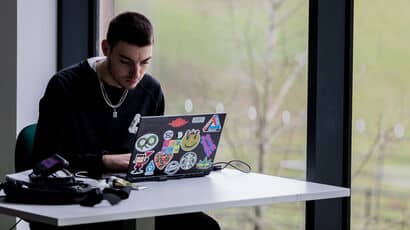Regional History Centre (RHC)
About the Regional History Centre
The work of the Regional History Centre is now part of the newly constituted Humanities Research Group (HRG) at UWE Bristol. We continue to promote research about regions and regionalism in the South West, nationally and internationally, incorporating a range of interdisciplinary approaches and practice.
The Humanities Research Group retains and expands the Centre’s commitment to public engagement and knowledge exchange, and to building partnerships with arts, history and heritage organisations, and the wider cultural industries in the region and beyond.
Regional History Centre (1997-2024)
The Regional History Centre (RHC) was established in 1997 working until 2024 to promote research into the history of Britain's South Western counties, and to further an understanding of regionalism as a dynamic force in the shaping of domestic and international histories.
Taking the ancient city and county of Bristol as its hub, the Centre's area of expertise included Gloucestershire, Wiltshire, Somerset, Devon and Dorset in England, as well as those parts of South Wales with which Bristol and Gloucester have enjoyed historic social and economic links. The Centre broadened its horizons still further by making links with regions further afield in Britain and in Europe.
The Centre developed strong links and collaborative projects with a number of regional partners and institutions in the local history and heritage field including Avon Local History and Archaeology, BCFM Radio, Being Human Festival, Bristol Record Society, Creative Youth Network, M Shed, Bristol, Redcliffe Press, Satsymph, VCH Gloucestershire, West of England and South West Women's History Network.
The Regional Historian
 The RHC also produced its annual yearbook, The Regional Historian, now supported by the Humanities Research Group. The Regional Historian continues to showcase new research from academics, students, and public scholars about Bristol and the region.
The RHC also produced its annual yearbook, The Regional Historian, now supported by the Humanities Research Group. The Regional Historian continues to showcase new research from academics, students, and public scholars about Bristol and the region.
Previously a twice yearly journal, The Regional Historian is now an annual yearbook. To get the latest issue of The Regional Historian, you will need to become an Associate Member of the Regional History Centre.
A selection of past issues of The Regional Historian are available to browse or download:
- The Regional Historian Issue No 7 (PDF)
- The Regional Historian Issue No 8 (PDF)
- The Regional Historian Issue No 9 (PDF)
- The Regional Historian Issue No 10 (PDF)
- The Regional Historian Issue No 11 (PDF)
- The Regional Historian Issue No 12 (PDF)
- The Regional Historian Issue No 13 (PDF)
Limited copies of issues 14 and onwards are available on request at a cost of £5 each.
In order to view the latest issue of The Regional Historian, please subscribe online.
You can now browse or search past editions of The Regional Historian by subject or keyword. To view or download articles in full, you will need to become an Associate Member of the Regional History Centre.
The Regional Historian digital archives
For past issues of The Regional Historian, please refer to the table of contents: volumes 1-22 (PDF).
Associate Membership
Associate Members receive:
- A copy of our annual yearbook, The Regional Historian. Some back issues and articles from the old twice yearly journal can be downloaded for free.
- Full access to The Regional Historian digital archives.
- E-mail alerts for all RHC activities, including upcoming seminars, conferences and workshops.
We are currently transitioning to a new free membership model. If you are interested in becoming a member, please complete the online membership form, or contact us via email (rhc@uwe.ac.uk).
Contact the RHC
For any enquiries, please email us at rhc@uwe.ac.uk.
You may also be interested in

Humanities Research Group (HRG)
The Humanities Research Group (HRG) promotes the value of the humanities in understanding our past, present and future.

Research in the School of Arts
Research in the School of Arts maintains our established reputation, nationally and internationally, across a range of disciplines.

Research in the College of Arts, Technology and Environment
The College of Arts, Technology and Environment (CATE) has a well-established and continuously developing research environment.
